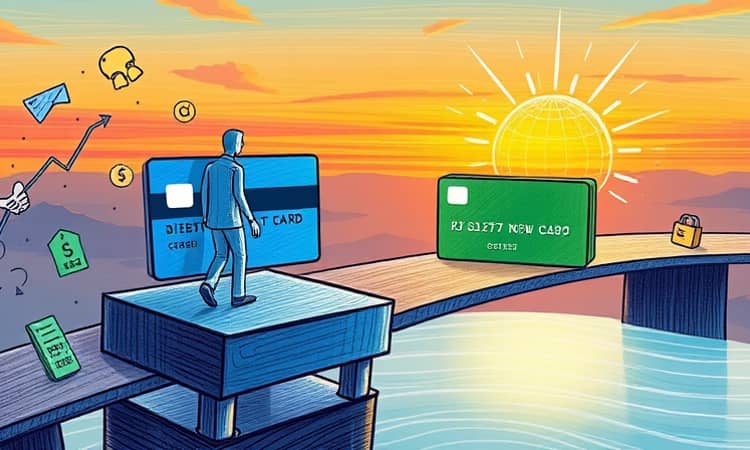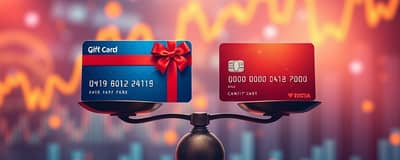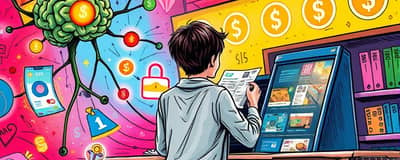Many people rely on debit cards for daily purchases, trusting the immediate deduction from their account to keep spending in check. But for those seeking rewards, robust protection, and a path to stronger credit scores, credit cards offer unparalleled advantages. This guide will take you through every step, from understanding the fundamentals to embracing a confident credit journey.
Understanding Debit and Credit Transactions
At its core, a debit card ties directly to your checking account, letting you access only the funds you have available. When you use a debit card with a PIN, the money is deducted instantly from your account balance. In contrast, a credit card functions like a short-term loan, drawing on a preset credit limit and requiring repayment later.
Most debit cards also bear a Visa or Mastercard logo, allowing you to choose “credit” at the terminal. This simply routes the transaction through credit networks, but the funds still come from your bank account—often settled in a few days rather than immediately.
Despite the rise of mobile wallets and contactless payments, debit cards still accounted for about 30% of all monthly transactions in 2023. This statistic underscores the enduring comfort and familiarity many consumers have with direct account-based spending.
Exploring Debit Card 'Credit' Processing
When you select “credit” on a debit terminal, the transaction is sent over Visa or Mastercard networks. You might only sign instead of entering a PIN, and the merchant’s acquirer holds the funds until final settlement.
It’s important to remember that choosing “credit” with a debit card does not magically extend you a loan—it simply changes the processing route. You’re still spending your own money, but you might gain added convenience when shopping online or at merchants that prefer signature-based verification.
The Advantage of Transitioning to Credit
Ever dreamed of earning cashback, travel miles, or bonus points every time you make a purchase? Credit cards unlock that potential. Beyond rewards, they often come with trusted layer of fraud protection, allowing you to dispute unauthorized charges more easily than with a debit card. And most importantly, using a credit card responsibly builds your credit history, opening doors to lower loan rates, higher borrowing limits, and improved financial opportunities.
- Access to rewards programs that boost savings.
- Enhanced purchase insurance and extended warranties.
- Zero-liability policies for unauthorized transactions.
- Monthly statements that help track and categorize expenses.
The Step-by-Step Journey
Shifting from debit to credit can feel daunting, but with a plan, it becomes an empowering journey. By following these steps, you’ll cultivate a clear spending oversight framework and mitigate the fear of overspending:
- Adjust your mindset from spending available funds to managing a revolving credit line.
- Apply for one credit card with terms you understand and a manageable limit.
- Move recurring bills—subscriptions, utilities—onto your new card to streamline payments and earn rewards.
- Set up autopay for at least the minimum due, ensuring on-time payments.
- Review your statement weekly to detect errors and unauthorized transactions early.
Transaction Flows Unveiled
To truly appreciate the difference in processing, let’s break down the steps:
Security, Fraud Protection, and Credit Building
One of the most compelling reasons to embrace credit cards is the added layer of security. If your card is lost or stolen, federal regulations often limit your liability to $50, and many issuers waive that entirely. With a debit card, unauthorized withdrawals could tap your checking funds directly, leading to greater short-term headaches.
Moreover, debit card activity is not reported to credit bureaus, so it has no impact—positive or negative—on your credit score. By contrast, timely credit card payments and balanced utilization ratios contribute to a healthy credit profile, enabling you to borrow at better rates in the future.
Challenges and Key Considerations
Transitioning does carry responsibilities. Without discipline, you risk gradual confidence building with each transaction turning into runaway debt. Interest rates can be steep if you carry a balance, and late fees add up quickly. Setting a personal budget, treating the credit line as sacred, and paying off balances in full each month will safeguard you against these pitfalls.
Deciding Between Debit and Credit
- Use debit if you want strict spending limits and dislike managing monthly bills.
- Use credit if you seek rewards, aim to build credit, and can commit to full monthly payments.
Real-Life Success Stories
Consider Maria, a graphic designer who used to rely solely on her debit card. After feeling stuck without rewards, she applied for a beginner travel rewards card. By automating her minimum payment and monitoring her account weekly, she not only earned enough points for a domestic flight within six months but also saw her credit score rise by 40 points.
Then there’s Jamal, who feared debt after college. He started with a secured card, keeping his balance low and paying in full every month. Over a year, he unlocked a standard unsecured card, gaining access to larger credit lines and feeling empowered by short-term borrowing power with convenience.
Embracing the Leap Forward
Moving from debit cards to credit cards is more than a procedural shift—it’s a mindset transformation. By harnessing rewards, building a solid credit history, and protecting yourself from fraud, you open doors to new financial opportunities.
Remember to stay disciplined, treat your credit line as a tool rather than free money, and lean on the tactics outlined here—automatic payments, weekly reviews, and controlled spending. Over time, you’ll find harmonious balance between freedom and responsibility, unlocking ever-greater peace of mind and financial growth.
This leap from debit to credit can redefine your relationship with money. Take the first step with confidence, and let each on-time payment guide you toward a future of financial empowerment and possibility.














